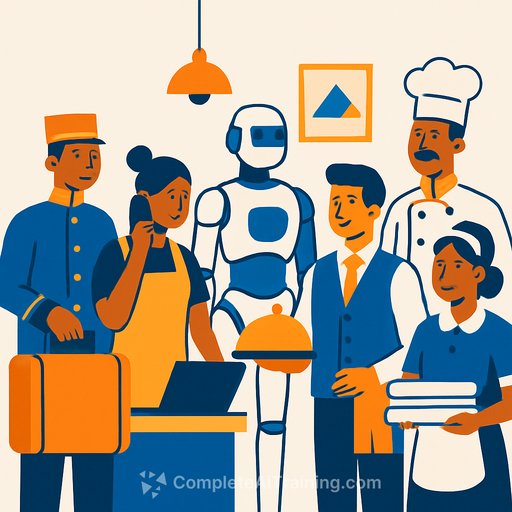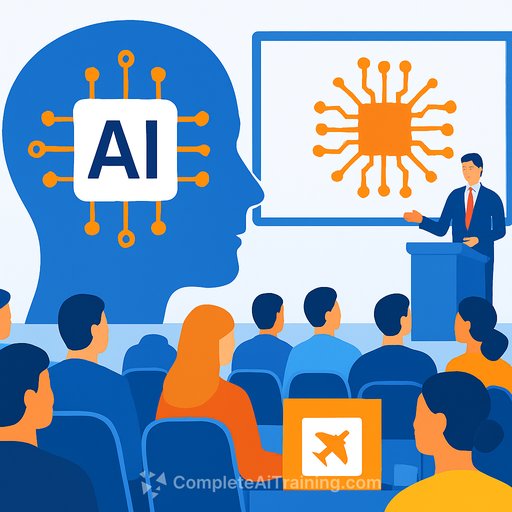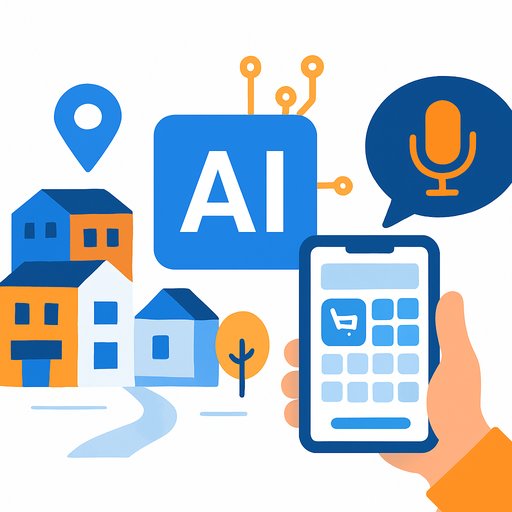Top 5 Jobs in Hospitality That Are Most at Risk from AI in Nigeria - And How to Adapt
Last Updated: September 12th, 2025
TL;DR
Frontline hospitality jobs in Nigeria-front-desk, reservation/ticketing, concierge, housekeeping, and food & beverage-face immediate automation pressure. Chatbots can cut repetitive guest requests by 50%+, and automation may affect up to 51% of hotel tasks. A 2025 study in Southeast Nigeria found strong links between AI tools and capacity building (r = 0.923, n = 304, p = 0.000). The playbook: run hybrid teams, strengthen cybersecurity, and reskill in practical AI.
Table of Contents
- Methodology: How we selected the top 5 and sources
- Front-desk / Reception / Reservation Agents
- Reservation & Ticketing / Travel Agency Roles
- Concierge & Guest Services (basic tasks)
- Housekeeping & Basic Room-Service Delivery
- Food & Beverage Frontline Roles
- Conclusion: Pathways to adapt and thrive in Nigeria
- Frequently Asked Questions
Methodology: How we selected the top 5 and sources
We focused on frontline roles in Nigeria with high exposure to routine, automatable tasks; areas where AI already cuts labor or risk (robots, IoT, predictive maintenance); known cybersecurity weak points (POS, Wi-Fi, IoT); and proven, affordable deployments that teams can adopt.
The review included city-hotel studies showing up to 51% of tasks are automatable, case studies where chatbots handle 50%+ of routine requests, and risk tools that monitor slip-and-fall hazards, food safety, and systems health. For cyber risk shaping job priorities, see hospitality threat overviews from UpGuard. Nigerian use cases and festival demand patterns were used to check local fit.
Front-desk / Reception / Reservation Agents
Why at risk: Most of the day is routine-check-ins, Wi-Fi questions, simple changes, and standard booking queries-now handled by chatbots and kiosks. Field data shows modern bots can remove over half of repetitive requests while upselling and supporting guests 24/7 in multiple languages. In Lagos and Abuja, that captures late-night and festival traffic without adding headcount.
How to adapt:
- Let bots answer FAQs; keep humans on empathy, disputes, and non-standard requests.
- Train teams to monitor AI alerts and jump on escalations fast.
- Turn bot-generated leads into upgrades, experiences, and direct bookings.
- Document clear handoffs so no guest gets stuck between bot and human.
"Routine tasks should be done by machines," says Diogo Vaz Ferreira. That frees staff to deliver the moments that earn five-star reviews.
Reservation & Ticketing / Travel Agency Roles
Why at risk: Digital platforms compress margins while fraud explodes. National reporting highlights job losses and annual losses in the billions of naira from illicit operators. Meanwhile, cybercriminal "travel agencies" use stolen cards and loyalty points to sell discounted itineraries via encrypted channels, pushing chargebacks and disputes onto legitimate sellers. See the analysis from Trustwave.
How to adapt:
- Specialise in complex corporate or festival travel where expertise matters.
- Harden APIs and loyalty programs; add velocity checks and device fingerprinting.
- Train staff to spot social-engineering cues and data mismatches at booking.
- Adopt fraud tools and share intel with trusted partners to stop repeat attacks.
"There must be laws put in place for IATA to adhere to… We don't want foreigners coming into the market and taking over our businesses," said Bankole Bernard, NANTA President.
Concierge & Guest Services (basic tasks)
Why at risk: Routine requests-restaurant bookings, transport, directions, amenities-are now handled at scale by AI concierges tied to the PMS. They confirm reservations, capture missed calls, and reply in multiple languages around the clock. During Eyo, Durbar, or Lagos Carnival, this speed is a clear edge.
How to adapt:
- Automate confirmations and routine follow-ups; keep humans for high-context tasks.
- Escalate emotionally charged or high-value requests to skilled staff.
- Blend AI insights with local knowledge to deliver timely, culturally smart help.
Housekeeping & Basic Room-Service Delivery
Why at risk: Predictable chores-corridor deliveries, standardized cleaning cycles-are ideal for robots and simple AI. Research and vendor data show robots can nearly double efficiency in some settings and raise team productivity and guest scores by 25%+.
How to adapt:
- Use robots for linens, vacuuming, and routine deliveries; keep humans for quality checks and recovery.
- Train for exceptions and system failures; create manual backup plans.
- Pair robotics with IoT sensors and predictive maintenance to avoid downtime.
Food & Beverage Frontline Roles (cashiers, order takers, simple servers)
Why at risk: Kiosks, mobile ordering, and chatbots process repeat orders and payments faster than queues. With labor sitting near 45% of operating costs, operators are pushed to automate where it makes sense. Peer-reviewed work also shows AI can lift demand-if teams shift into personalization, upsells, and swift error recovery.
How to adapt:
- Run fast, reliable ordering and payments at peak; staff focus on dietary needs and exceptions.
- Train servers to spot fraud flags and convert moments into high-value add-ons.
- Design clear "tech fails over" steps so service never stalls.
Practical Training and Tools
The fastest move is short, job-focused upskilling. A 15-week AI Essentials for Work bootcamp model teaches prompt craft and on-the-job AI skills. Early-bird pricing has been listed at $3,582.
- Core skills: prompt-writing, AI monitoring, escalation playbooks, fraud spotting, cybersecurity basics.
- Hospitality-specific upselling and guest-recovery tactics for city hotels and festival spikes.
- Inclusion: deliver offline/local-language training (Hausa, Yoruba, Igbo) so women and youth can participate.
Want quick options you can apply at work? Browse role-based and prompt-focused picks at Complete AI Training - Courses by Job and Prompt-Writing Courses.
Conclusion: Pathways to adapt and thrive in Nigeria
Run a hybrid model: machines handle the checkbox; your team keeps the handshake. Start with the most exposed tasks-ticketing, check-ins, routine orders-then add cybersecurity, guest recovery, and upsell skills. Invest in focused training so gains stay local and repeat guests keep coming back.
Frequently Asked Questions
Which hospitality jobs in Nigeria are most at risk from AI?
The five most exposed roles are:
- Front-desk / reception / reservation agents
- Reservation & ticketing / travel agency roles
- Concierge & guest services (basic tasks)
- Housekeeping & basic room-service delivery
- Food & Beverage frontline roles (cashiers, order takers, simple servers)
These involve repeatable tasks-check-ins, simple bookings, confirmations, standardized deliveries, and basic order/payment handling-that chatbots, kiosks, and robotics can perform at scale.
What evidence and metrics support this risk?
- 2025 peer-reviewed study in Southeast Nigeria: strong correlation between chatbots and capacity building (r = 0.923, n = 304, p = 0.000).
- City-hotel studies: automation may affect up to 51% of tasks.
- Chatbots: 50%+ reduction in repetitive guest requests reported in field examples.
- Service robots: 25%+ gains in team efficiency and guest scores; near-doubling of efficiency in some scenarios.
- F&B cost pressure: labor around 45% of operating costs.
How were the top-5 roles selected?
- Task routine level and automatable patterns (chatbots, kiosks, scheduling).
- Where AI/robotics already cut labor or risk (cleaning robots, IoT sensors, predictive maintenance).
- Cybersecurity exposure (POS, Wi-Fi, IoT) that reshapes job priorities.
- Existence of affordable deployments and clear reskilling paths for Nigerian teams.
For cyber context that affects frontline workflows, see UpGuard's hospitality cyber threats overview.
How can workers and employers adapt right now?
- Automate routine confirmations, payments, and FAQs; keep humans on empathy and exceptions.
- Train reception and concierge teams to monitor AI alerts and own escalations.
- Retrain travel agents for complex/festival travel and fraud detection.
- Deploy robotics for predictable chores; train for exceptions and recovery.
- Strengthen cybersecurity: harden APIs, loyalty programs, and share fraud intel.
What training paths and costs are recommended?
Short, modular courses that map to frontline tasks work best: prompt craft, AI at work, escalation workflows, fraud spotting, and guest recovery. A 15-week AI Essentials for Work bootcamp format has been cited at $3,582 early-bird. For quick picks, explore Latest AI Courses and Courses by Skill to equip teams fast.





